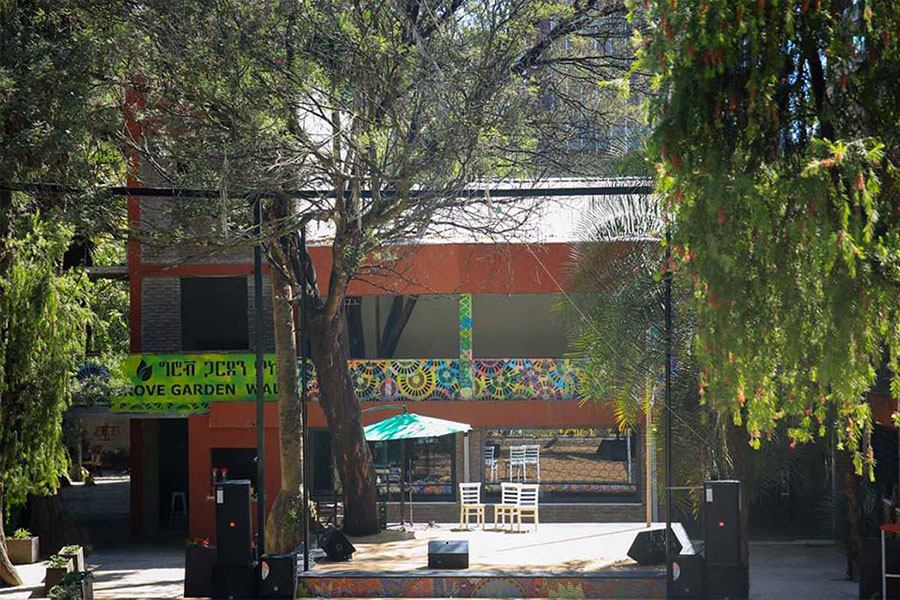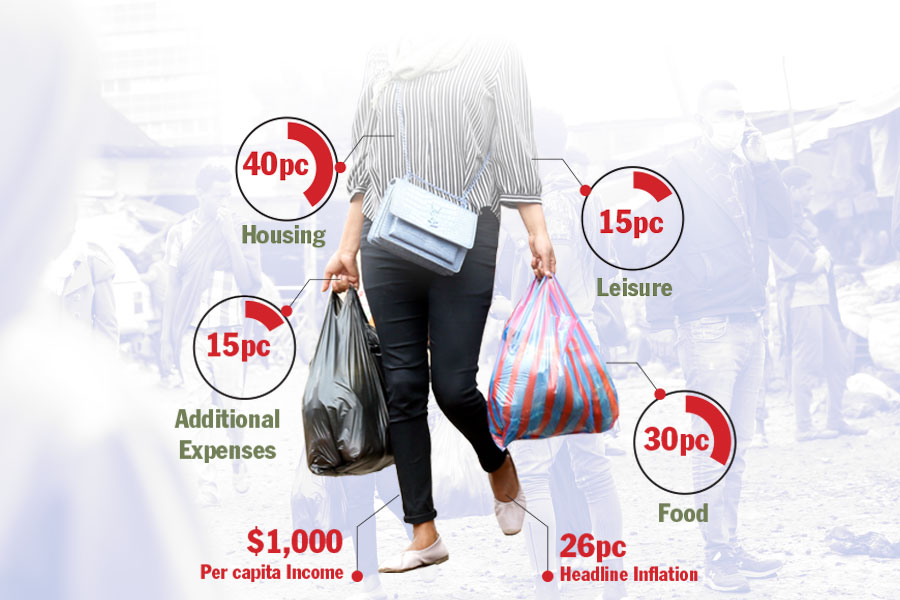
Agenda | Mar 19,2022
Beer companies have seen better times. A market that once experienced an unprecedented boom, as disposable incomes grew and beer companies used innovative marketing to reach target consumers, has been presented with a challenge that significantly threatens profit margins. The culprit is an excise tax increase.
Parliament passed the excise tax bill last month, which dealt with a wide array of products, including tobacco, bottled water, soft drinks and cars. The reason for the amendment was partly to counter the influence of products considered harmful to the public as well as the need to increase domestic resource mobilisation.
The impact has been felt instantly, and bars have emptied. Consumers are wary of the five to 10 Br increase in the price of a bottle of beer. This has been the consequence of raising the excise tax on beverages - with alcohol content under seven percent - to 40pc or 11 Br for a litre of beer, whichever is higher. Since the amendment took effect, the price of beer has gone up to an average of 25 Br, while the price of one crate of beer directly from the distributors has been bumped up by 140 Br to 430 Br. The government expects to collect 6.8 billion Br in taxes from bottled water, soft drinks, beer and alcohol manufacturers just within this fiscal year. But beer companies argue that the negative consequences will not justify the excise tax increase. The five local and international beer companies that produce 14.5 million hectolitres a year have created over 26,000 direct and indirect jobs. They have also created opportunities for close to 62,000 farmers that provide 3.5 billion Br worth of malt for the beer companies and paid 15.8 billion Br in taxes over the past three years.
The beer companies contend that they will be forced to lay off their employees and hold back on expansion plans. Heineken Breweries Ethiopia, the country's largest producer of beer, has already changed its plans for a 250-million-dollar expansion. It is not just beer companies that find themselves in a difficult situation. Some bar owners, hit by a declining number of customers, are touting the idea that it is time to exit the beer market. “I don’t know much about the boutique clothing business,” said a bar owner Fortune approached for comment. “I plan to give it a go; I have a family to support."
You can read the full story here
PUBLISHED ON
Feb 29,2020 [ VOL
20 , NO
1035]

Agenda | Mar 19,2022

View From Arada | Mar 13,2021

Fortune News | Dec 19,2021

Fortune News | May 28,2022

Fortune News | Aug 07,2021

Covid-19 | Jun 11,2021

Fortune News | Feb 19,2022

Editorial | Sep 26,2021

Fortune News | May 23,2021

Films Review | Jul 13,2019

Dec 22 , 2024 . By TIZITA SHEWAFERAW
Charged with transforming colossal state-owned enterprises into modern and competitiv...

Aug 18 , 2024 . By AKSAH ITALO
Although predictable Yonas Zerihun's job in the ride-hailing service is not immune to...

Jul 28 , 2024 . By TIZITA SHEWAFERAW
Unhabitual, perhaps too many, Samuel Gebreyohannes, 38, used to occasionally enjoy a couple of beers at breakfast. However, he recently swit...

Jul 13 , 2024 . By AKSAH ITALO
Investors who rely on tractors, trucks, and field vehicles for commuting, transporting commodities, and f...

Oct 11 , 2025
Ladislas Farago, a roving Associated Press (AP) correspondent, arrived in Ethiopia in...

Oct 4 , 2025
Eyob Tekalegn (PhD) had been in the Governor's chair for only weeks when, on Septembe...

Sep 27 , 2025
Four years into an experiment with “shock therapy” in education, the national moo...

Sep 20 , 2025
Getachew Reda's return to the national stage was always going to stir attention. Once...